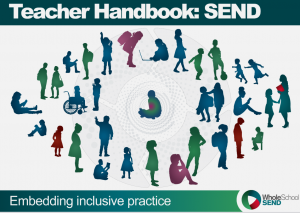
Introducing Curriculum Dialogues
Curriculum lies at the heart of good teaching. Ofsted’s Education Inspection Framework focuses on the breadth of a school’s curriculum offer.
Teachers have a crucial role in scaffolding children’s knowledge and understanding. This is only possible when their own subject knowledge is secure and for many trainees, this can be a daunting thought.
You will want to support your trainee by providing information on useful links to subject associations.
You will also be aware of subject experts within your own schools and can provide opportunities for trainees to have professional conversations with subject leads.
Trainee teachers should be encouraged towards a ‘pedagogy of repertoire rather than recipe’ and they can do this by developing a strong knowledge of an appropriate range of teaching methods suitable to the subject, understanding why and when to use particular teaching approaches for a subject.
Trainee Teacher should understand and explore the concept of progression within a curriculum. You might find this glossary helpful when discussing curriculum design with your trainee. A consistent use of the terms will help to deepen professional learning.
| curriculum | what is intended to be taught and learned overall |
| concept | the key organising ideas for a subject discipline |
| impact | the result of pupils learning from the teaching |
| implementation | how you go about teaching the curriculum/intent |
| intent | the content you expect children to learn and the sequence it is planned in |
| mastery | a teaching methodology that builds children’s conceptual understanding, language and communication |
| misconceptions | pre-instructional knowledge that is wrong, illogical or misinformed |
| progression | the purposeful sequencing of teaching and learning expectations across multiple developmental stages/ages |
| schema | a pattern of thought or behaviour that organises categories of information and the relationships among them |
In relation to inclusive pedagogy and curriculum, reference to the knowledge that we have of our learners is significant. Pages 16-25 of the handbook provide some helpful insights in this regard. Additionally the information that relates to subject specific guidance on pages 58-112 might be helpful to reference.
Next, Emily shares how the website has helped her focus her mentoring dialogues, so that she doesn’t overwhelm her trainee to promote a productive dialogue. She describes how this section of the site has helped us to collaborate with her trainee in relation to developing their understanding of the curriculum.

These questions may help you to explore, evaluate and elaborate your trainee’s professional understanding in relation to curriculum.
- How well does your curriculum design meet the needs of diverse groups of learners?
- How have you ensured that your curriculum design is coherent and cumulative?
- To what extent does your lesson sequencing allow for new learning to be linked with existing knowledge?
- What impact does your subject knowledge have on pupil progress? To what extent?
- To what extent does the design of your curriculum foster pupils’ appreciation of the subject being taught?
- How am I ensuring that pupils with SEN have sufficient opportunities to build key capabilities?

Mark Enser shares some thoughts about the significance of subject knowledge.
Colin Richards asks questions in relation to ‘Broad? Balanced? Curriculum?’
You may also find that the Ofsted videos on curriculum design are a useful resource to bring into your dialogues. There are a range of short clips and we think that these will be useful for you and your trainee to select from and watch and discuss together.

